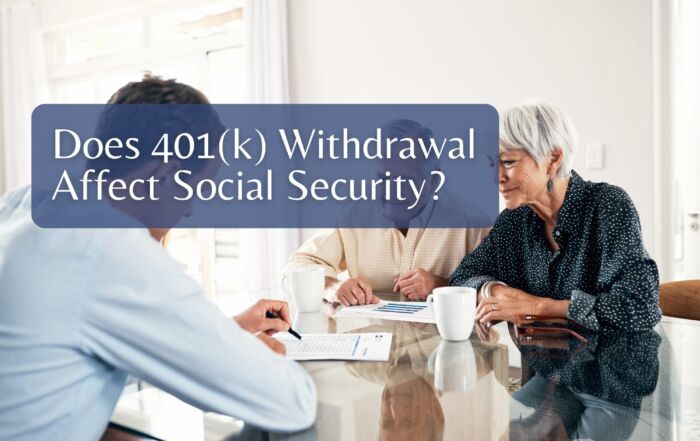Right Now You Need to Do Nothing

“Your best move is to stay invested and keep your fingers crossed.”
The original publication of this article can be found here.
The following is an interview done by CNBC with Vanguard founder Jack Bogle. Mr Bogle is a very wise man and all individual investors should listen closely to his advice.
In the wake of the market’s worst week since 2011, the question for individual investors is what to do?
Nothing, says Jack Bogle, the legendary founder of the world’s largest mutual fund company, Malvern, Pennsylvania-based Vanguard Group. “I’ve seen turbulence in the market,” he said. “This is not real turbulence.”
“Don’t do something. Just stand there,” he quips. Aside from concerns about debt, the long-term fundamentals in the U.S. economy are sound, he pointed out. Unless you need your money in the short term, leaving your money in a portfolio with the right weighting of stocks for your age and risk tolerance still gives you the best chance for success in the long term—even in a volatile or falling market. Bogle himself isn’t making a move.
Most market corrections are just that—corrections, and it’s better to stay in the market to capture the rebound, which usually brings the market back up to previous levels and then some. Even the worst-case scenario —like the financial crisis and the lost decade of the 2000s—is not as bad as some investors might imagine. If you stayed invested throughout the 2000s, you would have lost an average of less than 1 percent a year, Bogle pointed out. That’s substantial, but not a nightmare. Many investors lost more than that because they sold in a panic near the bottom in 2008-09.
“I have advice for long-term investors,” he said. “I have no advice for speculators.”
The markets are far from that worst-case scenario, though there are concerns. The Dow Jones industrial average and the Nasdaq both fell more than 3 percent last week, into correction territory, and the S&P 500 dropped to a level that is 7.6 percent off its 52-week high. The last time the Dow closed more than 500 points lower was Aug. 10, 2011. August is often a volatile month in the U.S. stock market, because trading volumes are low.
This year, the volatility has been heightened by a handful of negative signals in the U.S. economy, including lowered earnings expectations. But what’s really driving the fear appears to be concern about China. The world’s second-largest economy is slowing to its weakest growth rate in more than a quarter-century, with worries rising that it won’t hit its 7 percent growth target.
A decline of more than 30 percent in the country’s speculation-driven market, made up largely of individual investors rather than institutions, is prompting comparisons with the U.S. stock market in 1929 or Japan’s in 1989.
And earlier this month, Beijing, in a surprise move, devalued the yuan, the Chinese currency. Analysts took that as a sign that there is even more weakness in the Chinese economy that hasn’t yet emerged.
Problems in China could drag the U.S. down and damage an already weakened Europe.
“We live in an uncertain world,” Bogle acknowledged. “Stocks are fully priced and interest rates are already low.”
Yet, history shows the worst mistake, and the one investors are most apt to make, is to sell when the market is falling. Investors underperform the market every year, because they follow the herd and sell in a panic. Not only are you likely to miss the rebound, when the market makes up losses, but if you’re in a taxable portfolio, “you’d probably pay a very large tax,” Bogle said.
Some analysts suggest that investors see the decline as an opportunity to buy. That’s not as bad an idea, but “nobody can tell you when the market is going back up,” Bogle pointed out. “Maybe one guy, and he’s up in a different world, heaven.”
The bottom line: Sure, there are worries. But your best move is to stay invested, control your fear and “keep your fingers crossed,” Bogle said. “I don’t know a better strategy.”
Have more questions? Email me at info@wiserinvestor.com or use the Contact Us page.
Share This Story, Choose Your Platform!
Wiser Wealth Management, Inc (“Wiser Wealth”) is a registered investment adviser with the U.S. Securities and Exchange Commission (SEC). As a registered investment adviser, Wiser Wealth and its employees are subject to various rules, filings, and requirements. You can visit the SEC’s website here to obtain further information on our firm or investment adviser’s registration.
Wiser Wealth’s website provides general information regarding our business along with access to additional investment related information, various financial calculators, and external / third party links. Material presented on this website is believed to be from reliable sources and is meant for informational purposes only. Wiser Wealth does not endorse or accept responsibility for the content of any third-party website and is not affiliated with any third-party website or social media page. Wiser Wealth does not expressly or implicitly adopt or endorse any of the expressions, opinions or content posted by third party websites or on social media pages. While Wiser Wealth uses reasonable efforts to obtain information from sources it believes to be reliable, we make no representation that the information or opinions contained in our publications are accurate, reliable, or complete.
To the extent that you utilize any financial calculators or links in our website, you acknowledge and understand that the information provided to you should not be construed as personal investment advice from Wiser Wealth or any of its investment professionals. Advice provided by Wiser Wealth is given only within the context of our contractual agreement with the client. Wiser Wealth does not offer legal, accounting or tax advice. Consult your own attorney, accountant, and other professionals for these services.





